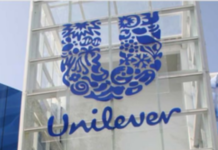San Francisco– While tech billionaire Elon Musk recently said that Tesla would be reducing its salaried headcount by 10 per cent, a Goldman Sachs analyst says it can provide the company up to $1 billion in annual operating expenses (OPEX) savings — the company’s day-to-day expenses.
Recently, Musk had noted that his electric vehicle company would be reducing its salaried headcount by 10 per cent as the company has become overstaffed in some areas.
This initiative, at least according to Goldman Sachs analyst Mark Delaney, could translate into $0.225-$1 billion in annual OPEX savings, reports Teslarati.
In a message to Tesla employees, Musk noted that while the company is reducing its headcount by about 10 per cent, staff working on key projects such as vehicle and battery production, as well as solar installations, would be unaffected by the layoffs. Hourly headcount will also be increasing.
“Tesla will be reducing salaried headcount by 10 per cent, as we have become overstaffed in many areas. Note, this does not apply to anyone actually building cars, battery packs, or installing solar. Hourly headcount will increase,” Musk wrote in his email.
In later comments, Musk further clarified that Tesla plans to increase its total headcount over the next 12 months, though the number of paid employees won’t likely change much.
“Total headcount will increase, but salaried should be fairly flat,” Musk wrote.
Delaney weighed in on Musk’s statements. According to the analyst, Musk’s comments suggest that Tesla plans to limit cost growth and not reduce its OPEX at all. This, in turn, should result in some savings for the electric vehicle maker.
“Musk’s comments on Twitter of salaried headcount being fairly flat suggest the company’s plan is to limit cost growth and not reduce OPEX overall,” Delaney said.
“Our base case assumption is for OPEX, including SBC to rise by an average of about $255 million per quarter from 2Q22 through 4Q22, by $1.9 bn in 2022 YoY, and by $2.6 billion in 2023 YoY. Each $100 million of OPEX is about $0.06-$0.08 of EPS,” Delaney added. (IANS)







